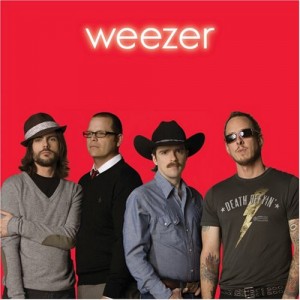 If you’re out at your local record store anytime soon thumbing the “W” section, you’re likely to stumble across an album with a large close-up of actor Jorge Garcia staring at you from its cover. Any fans of the TV show “Lost” will let out a collective “Hurley!” when this moment occurs. Any Weezer fans will just say, “Yeah, yeah, it’s just the new Weezer album.”
If you’re out at your local record store anytime soon thumbing the “W” section, you’re likely to stumble across an album with a large close-up of actor Jorge Garcia staring at you from its cover. Any fans of the TV show “Lost” will let out a collective “Hurley!” when this moment occurs. Any Weezer fans will just say, “Yeah, yeah, it’s just the new Weezer album.”
Confusing? If you haven’t seen it, Weezer’s eighth album is called Hurley, supposedly named after actor Jorge Garcia’s character on “Lost.” However, shortly before the album’s release in September of this year, Weezer guitarist Brian Bell commented in an interview that clothing company Hurley International had funded the record, hence the title. Bell later issued a retraction saying that though Weezer did have connections with Hurley (their own clothing line, to be exact), the band themselves paid for the record, and the title was in no way influenced by the company.
Whatever the truth of the origins of the title Hurley, Weezer did have some sort of sponsorship arrangement with Hurley International (and the fact that news of this controversy broke just weeks before the album’s release date surely didn’t hurt sales). And band sponsorship’s have been around seemingly as long as bands have.
Gibson gets to make a custom Les Paul guitar with Slash’s name on it, so in return, Slash gets free Les Pauls. It’s a win win for everybody. And though some indie acts get accused of selling out (see: Wilco licenses their songs to Volkswagon), the fact is that bands need money to keep producing the music we love. In today’s declining retail music sales, sponsorships (corporate or not) are as crucial as they ever have been—and maybe more important than ever.

